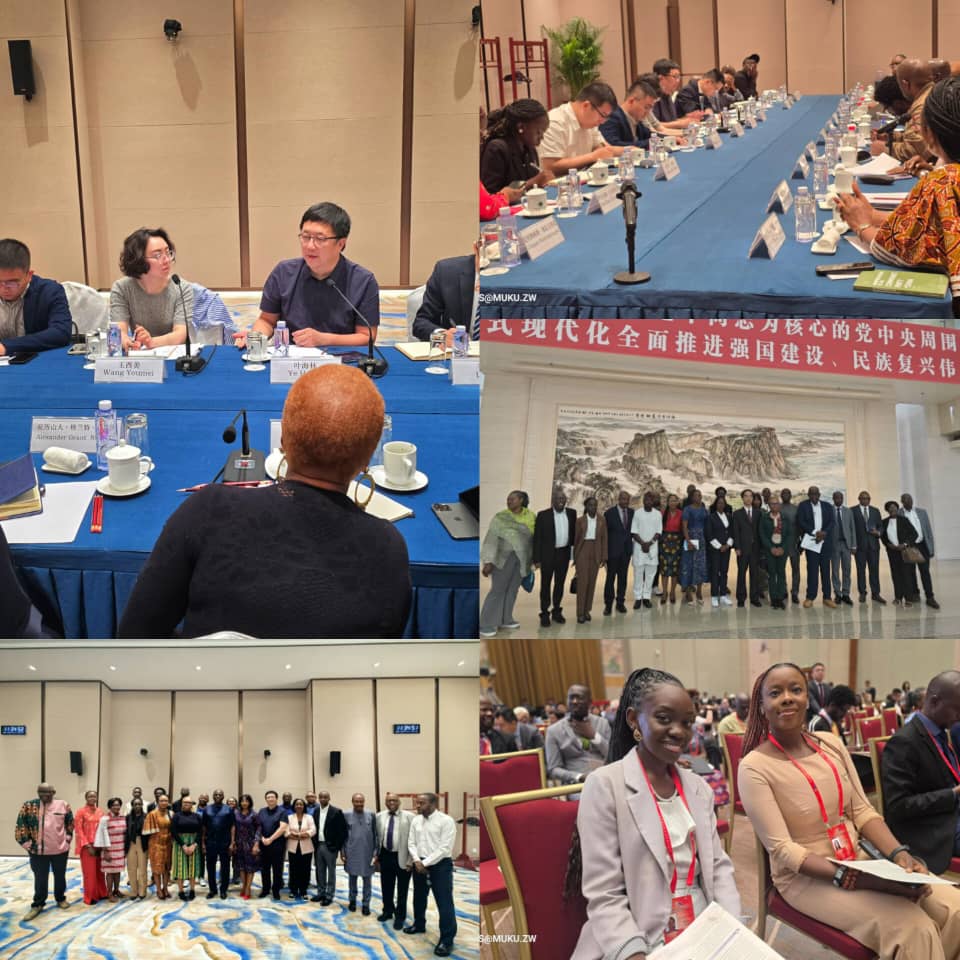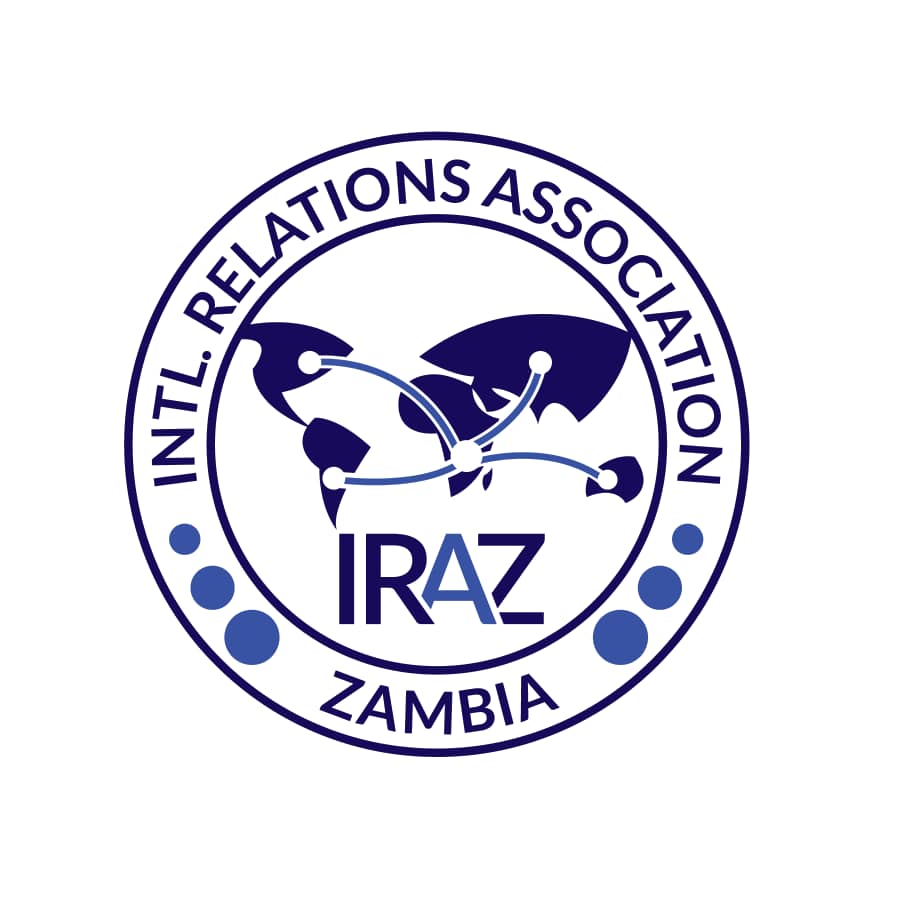
CHINA'S AFRICAN POLICY AND ITS PHILOSOPHY
As the world undergoes significant geopolitical transitions, a recurring question continues to dominate global headlines and social media discussions regarding China-Africa relations: “What does China really want in Africa?”
Over the course of one week (from the 28th of May to 2nd June 2025), on the sidelines of the Fourth Dialogue on Exchanges and Mutual Learning Among Civilizations, hosted by the Chinese Association of Understanding in Dunhuang, a diverse group of African think tanks and media representatives from Zambia, South Africa, Nigeria, Ghana and Zimbabwe convened in Beijing to explore what is behind these bilateral relations. The goal was to deepen understanding and, where possible, reach a shared perspective on the evolving nature of China-Africa engagements. IRAZ was honoured to be part of these strategic discussions and privileged to gain direct insight into the conversations shaping the future of international cooperation.
During a series of meetings held in the conference halls of Haidian district, the delegation engaged with Mr. Shen Sha, Counselor at the Ministry of Foreign Affairs of the People’s Republic of China. Mr. Shen shared key elements of China’s policy approach toward Africa. Underlining some distinct features of China’s diplomacy approach and the principles that guide China-Africa relations such as China’s tradition of an annual high level Minister visiting the Continent to have a first hand experience of this cooperation, China’s support for African countries’ independence, peace and security on their path to development while upholding the principles of sovereignty and non- interference in each country’s internal affairs.
He highlighted the milestones and outcomes of the 2024 Beijing FOCAC that make China confident in its partnerships with African Countries and the Beijing Declaration which demonstrates China’s firm determination to promote an equal multipolar world and further detailed the direction of FOCAC in the next three years, emphasising that the “friendly exchanges among our civilizations will provide the spiritual fertiliser to the root and blood of our collective cooperation and the bond of infinity that our people share “. He firmly remarked that unity and cooperation of African nations is an important foundation for China’s strong relations with Africa and that this will not change despite the development of China itself and China’s international standing.
National Executive Committee member of the African National Congress, Lindiwe Zulu attested to the importance of African unity and how Africa’s disunity has been taken advantage of by other players in the international community whereas China brings us together. “African unity” she stated ,” remains the conerstone of everything and we must be assisted in that unity.” Our voice in critical issues ensures that a win-win for our people is always at the center of our cooperation.
The delegation emphasized that for Africa to achieve sustainable development, it is essential to transition from planning and exporting of raw materials to production and manufacturing. Africa’s longstanding challenge has been effective implementation—often hindered by conditions attached to development support. Additionally, the delegation emphasized Africa’s capacity to shape its own future, affirming that Africans are fully capable of delivering solutions to the continent’s challenges. Africa approaches the global stage as an equal partner in its development journey—seeking only trustworthy allies on geopolitical matters. In this spirit, the delegation called on China not to be deterred by ideological differences, but rather to continue fostering mutual respect and cooperation.
Responsibility of Think Tanks.
Following this, the delegation met with Mr. Li Mingxiang, Deputy Minister of the International Department of the Communist Party of China (CPC), who reaffirmed that strengthening solidarity and cooperation with African countries remains a consistent priority in China’s diplomatic agenda. China will not abandon its responsibilities nor does it desire a hegemonic status. China stands for a harmonic system that celebrates multilateralism, mutual benefits and sincerity, to which the delegation responded, stating that Africa faces an era of geopolitical realignment and profound transformation with the common belief that we must work together to implement the principles and action plans proposed by China. In this period of transition, Africa’s transformation is not an abstract concept but one that is unfolding in many areas. With this shared committment and high quality cooperation, these principles must guide our institutions to maximise local skills development and explore steady economic vitality. It is our collective responsibility to no longer be passive or wait for external AID but pay attention to the young minds and the innovative ideas they present.
The Blueprint for Modernisation.
In an interesting engagement, the Director of International Relations at China-Africa Institute- Mr Ye Hailin, alongside the delegation expounded upon the flaws in the traditional theories of modernisation that have been thrust as universal standards, agreeing on the fact that political freedom doesn’t mean a complete degree of economic freedom. China once faced this challenge and understands that economic independence demands for an open market, mobilization, efficient management of natural resources and the embrace of external markets. It is evident that the cost of modernization in traditional theories has been deliberately overlooked, as analysis reveals that one country’s modernization is always invariably achieved at the expense of another.
If Africa wants to follow this path then Africa must consider the cost. Alternatively Africa must find its own path to modernisation or otherwise ask the question ‘who will pay the price’. The decrease of foreign influences is an opportunity to transform Africa because we were the price payer. Africa must not be afraid to be criticised for abandoning the traditional theories of modernisation, rather, like China, Africa must find and embrace a theory that works for us whether that be the Chinese Modernisation Process or a unique process rooted in our strong social and community values to establish stable states. Whatever the case maybe, it is important to note that the cost is within, through production and well managed states. China proposes a collaborative path to modernization, recognizing that development is not a finite goal but an ongoing process of economic, technological, social, and cultural improvement.
Africa and China have a traditional longstanding friendship and a common struggle for liberation from the imagery promoted by outsiders. The International community is currently plagued with instability and uncertainty but China leverages on the strength and defining features of its friendship with Africa as a committed and reliable partner as history has proved. So, the answer to this burning question is simple: an equal partnership, a shared community, and a steadfast advocate for the common principles and rich cultural heritage that the world often dismisses as ‘primitive.’ It is about collaboration and a united future for mankind. This is what China seeks—and precisely what Africa aspires to achieve.
